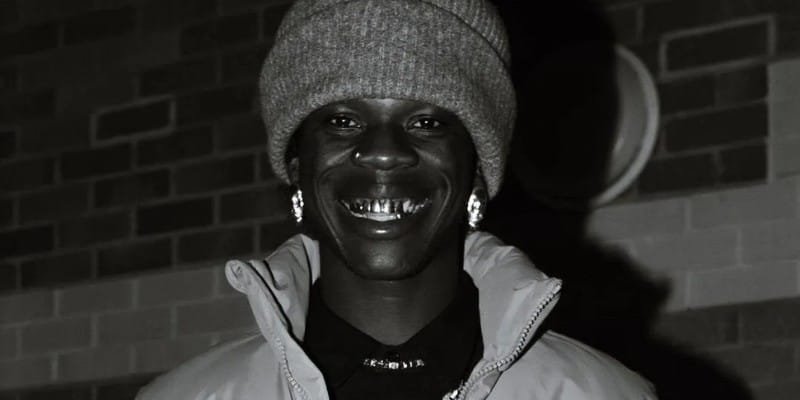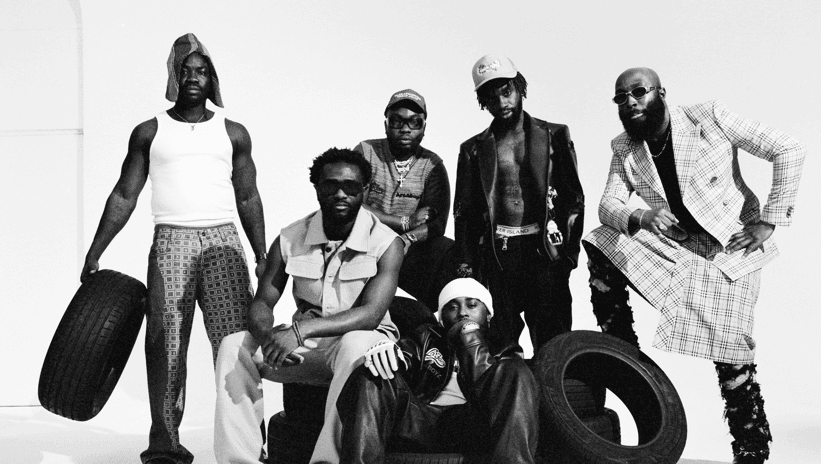Nigerian street-hop star Seyi Vibez recently released a new single titled Pressure. His second official release of the year, following the Children of Africa EP. For fans who have followed him closely, the song is a significant departure from the stylistic and sonic blueprint he’s followed since his 2022 mainstream breakout project Billion Dollar Baby.
For the first time in a long while, Seyi Vibez delivers a song with no Yoruba lyrics. But it’s not only the language that’s changed. He’s swapped the electric and razor-sharp hip-hop cadence that has defined his mainstream run so far for a softer, more melodic R&B tone. A throwback to his early days in the industry, most notably his debut project, No Seyi, No Vibez.
On the surface, this might seem like a simple case of an artist borrowing from the past in a bid to shape the future. But a closer inspection of this and other recent shifts suggests an ambitious and more strategic move and perhaps a calculated step toward global expansion.
Seyi Vibez is an artist whose artistry is grounded in the musicality of rich Indigenous Yoruba music and shaped by inner-city realities.
He doesn’t necessarily push sonic or musical boundaries like a Rema would. What he excels at is capturing the essence of trending mainstream sounds and delivering them in a way that resonates with the streets. His most recent hit single, Shaolin, mirrors the breathless, uptempo Mara sound of Rema’s hit single Ozeba. Similarly, his mainstream breakout single Chance borrows from Asake’s hit single Organise, incorporating the Afrobeat, Amapiano, Fuji and crowd vocals that shaped Organise.
Since 2022, he has consistently maintained his distinct local sound, rooted in Yoruba music, while embracing evolution at key moments in his mainstream career, which makes the sonic shift on his latest single even more noticeable. While Seyi Vibez has earned the right to do whatever he wants sonically, his reputation as the pulse of the streets, who makes up a large chunk of his fan base, makes his latest move feel especially pointed.
And when you factor in his seemingly forceful departure from the Damilola Akinwunmi–led Dapper Music & Entertainment – who orchestrated his rise from niche street hop sensation to mainstream stardom – to the Ghazi-led Empire – who orchestrated Asake’s incredibly successful mainstream run on the international scene – it doesn’t take a genius to put two and two together.
Pressure isn’t simply another experiment. Seyi Vibez is gearing up for a full-blown international run, and Pressure –like Chance in 2022– is the catalyst.
This explains why Pressure feels markedly different. The record strips away key elements that have defined his mainstream run and leans into choices that are designed for a wider audience.
This is in no way suggesting that Pressure is a bad song. It’s not. It’s a mid-tempo, melodic record that sees Seyi Vibez venture into softer and more accessible pop territory. The production is smooth, driven by R&B chords and minimal percussion that allow his vocals to shine. He delivers tender lines about love, commitment, and emotional support.
The chorus is simple and catchy, with a romantic hook centred around applying “pressure” to build something beautiful, like a diamond, out of a relationship. It’s a softer and more polished Seyi Vibez. There are no raw, street-centric flows and slang-heavy verses. Instead, Pressure relies on harmonies, clean vocal runs and emotional vulnerability.
However, the most striking change in Pressure isn’t the softer tone or slower tempo; it’s the choice of language itself. A deliberate move that reveals more about his intentions than his production choices could.
Yoruba is one of the defining traits of his music. The linguistic, spiritual and cultural expressions are fundamental elements of his music. These elements earned him the streets and the diehard fans who see themselves in him. While he has earned the right to sing in whatever language he desires, Seyi Vibez and his team must ensure that they don’t alienate the connected home base that brought him to the dance.
Asake has shown that you can blow the roof off international arenas while remaining deeply local in sound and language. He made the world bend to his culture, not the other way around. While Pressure signals ambition, Seyi Vibez does not need to shed his linguistic identity to succeed internationally. He can expand his reach while still speaking the language of the people who lifted him. For an artist who built his empire by translating trends into the language of the streets, abandoning that dynamic is very risky.
However, ambition is not enough to guarantee acceptance. In the global music ecosystem, authenticity travels fast, and artists who retain their identity tend to stand out more than those who substitute it for accessibility. Wizkid learnt this the hard way when his third album, Sounds from the Other Side, failed to make a dent on the international scene while it was also brutally ignored by the home base, who couldn’t connect to its vibrant Caribbean sounds despite its immense quality.
Seyi’s decision to sideline Yoruba—at least for this record—risks losing the very essence that set him apart.
It’s also possible that this is just a calculated pause rather than a full pivot. A soft landing to test international waters. Expansion doesn’t have to mean erasure. The challenge will be finding the balance: how to connect to the world without losing the connected audience at home.
Whatever is next, Pressure is a clear sign that Seyi Vibez wants more. He is already thinking beyond the borders that first embraced him. He wants international acclaim, and with the machinery behind him, success may be a given. The question now is whether Seyi Vibez can take the world without losing the streets that made him. We shall see.

















